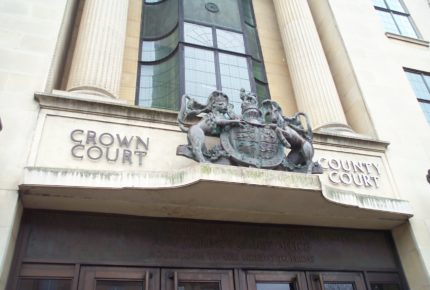

Boiler room fraud has become a concerning issue in the UK, with hundreds of cases reported annually. If you’re arrested or charged with this offence, it’s very important that you seek legal assistance from a solicitor as early as possible to ensure your rights are protected and you receive the best possible defence. In this article, we will address several key questions you might have, such as “Do I need a solicitor for boiler room fraud?” and “What are the possible defences for boiler room fraud?” We’ll also explore common concerns around bail, legal aid, and where to turn next.
Do I need a solicitor for boiler room fraud?
Boiler room fraud is a complex and serious financial crime involving the selling of investments that are often worthless or non-existent. Those committing such frauds typically use high-pressure sales tactics and false information to persuade individuals to invest large sums of money.
A solicitor can help you navigate the intricate legal landscape associated with boiler room fraud charges:
- Expertise in Financial Crimes: Solicitors experienced in financial crimes have the knowledge to understand the specific elements involved in boiler room fraud cases. They can dissect the complex financial transactions and identify any inconsistencies or gaps in the prosecution’s evidence.
- Legal Representation: In court, a well-prepared defence is imperative. A solicitor can construct a strong defence strategy, presenting your case in the best possible light and challenging the evidence against you. They can also cross-examine witnesses to undermine the prosecution’s arguments.
- Negotiation Skills: Sometimes, it may be possible to negotiate with the prosecution to reduce the charges or lessen the potential penalties. A solicitor will possess the necessary skills to engage in negotiations that could be beneficial to your case.
- Guidance and Support: Facing criminal charges can be overwhelming. A solicitor will not only offer legal advice, but they will also provide emotional support and help demystify the legal process. They can clarify your rights and explain what is likely to happen at each stage.
What are possible defences for boiler room fraud?
One common defence to boiler room fraud is the lack of intent to defraud. For a conviction to occur, the prosecution must prove that there was a deliberate intent to deceive the investors. If you can demonstrate that you genuinely believed the investments were legitimate and had no intent to defraud, this could be a strong defence.
Others include:
- Duress: If you can show that you were coerced or threatened into participating in the fraudulent scheme, it may be a valid defence. This means presenting evidence that you were under significant pressure or fear of harm if you did not comply with the actions leading to the fraud.
- Entrapment: This occurs if it can be demonstrated that officials induced you to commit the crime that you otherwise would not have committed. Proving entrapment requires showing that the crime was the result of actions by the authorities and not your own initiative.
- Procedural Error: This might include mishandling of evidence, violations of your rights during the investigation, or failure to follow proper legal procedures. Highlighting such mistakes can undermine the prosecution’s case against you.
- Mistaken Identity: Providing an alibi or other evidence that proves you were not involved in the fraudulent activities can lead to a dismissal of the charges.
Will I get bail for boiler room fraud?
When you are arrested and charged with boiler room fraud, you may be held in custody until your first court appearance. At this hearing, known as a bail hearing, the court will decide whether you can be released on bail or whether you will remain in custody until your trial. The key factors that the court will consider when making this determination include:
- Risk of Fleeing: The court will assess whether there is a significant risk that you might abscond, or fail to appear for your trial, if released on bail.
- Previous Criminal Record: Your criminal history, if any, will be scrutinised. A history of similar offences or breaches of previous bail conditions could negatively affect your chances of being granted bail.
- Strength of Evidence: The court will examine the prosecution’s evidence against you. Strong evidence may lessen your chances of being granted bail.
- Risk to Public Safety: If the court believes that releasing you on bail might pose a risk to public safety, you are unlikely to get bail.
Will I have to go to court if I’m arrested or charged for boiler room fraud?
The likelihood of going to court hinges on the strength of the evidence against you and the specific circumstances of your case. Some key points to consider include:
- Initial Investigation: Once an accusation is made, a thorough investigation will be conducted by authorities such as the Financial Conduct Authority (FCA) or the Serious Fraud Office (SFO). They will gather evidence, interview witnesses, and look into financial records.
- Charges and Summons: If sufficient evidence is found, you may be formally charged and summoned to appear in court. This step indicates that the prosecution believes they have a strong enough case to move forward.
- Pre-Trial Decisions: In some instances, there might be an opportunity for your solicitor to negotiate with the prosecution to have the charges reduced or even dropped. This could include providing evidence to dispute the allegations or demonstrating that you were not fully aware of the fraudulent activities.
- Trial Process: If negotiations or legal defences are unsuccessful, the case will proceed to trial. As boiler room fraud is a serious offence, it is likely to be heard in a Crown Court before a judge and possibly a jury, depending on the specifics of your case.
Will I go to jail if found guilty of boiler room fraud?
When determining whether a custodial sentence is appropriate, the court will consider:
- The scale of the fraud
- The amount of money lost by victims
- Your role in the fraud (e.g., whether you were the mastermind or a minor participant)
- Whether it was a planned operation or a one-off offence
- The impact of the crime on the victims
- Any previous convictions you may have related to fraud or other offences
If the fraud was extensive and you played a major role in the scheme, a custodial sentence is more likely. For particularly severe cases, sentences can be significant, reflecting the harm caused to the victims and the need for deterrence. Conversely, in minor cases or for first-time offenders, there might be alternative sentences such as community service, fines, or suspended sentences.
Will I go to jail if it’s my first offence of boiler room fraud?
When it comes to sentencing for boiler room fraud, courts consider multiple factors, as outlined throughout this article, not just whether it is a first offence. That said, the fact that an offence is a first time offence will often present as a mitigating factor to the court – in other words, as one that will lessen the severity of any punishments brought against you if found guilty.
Can I get Legal Aid for boiler room fraud?
Legal aid in the UK is designed to help those who cannot afford legal representation. It covers a broad range of offences, including serious fraud cases like boiler room fraud. Whether you can get legal aid depends on several factors, including the nature of the case and your financial situation.
There are two tests relevant to the assessment of eligibility for legal aid. These are:
- Means Test: The first step in determining eligibility for legal aid is a means test, which assesses your financial situation. This includes income, savings, and other assets. Generally, if your financial resources fall below a certain threshold, you may qualify for legal aid.
- Merits Test: Even if you pass the means test, you must also pass the merits test. This evaluates whether it’s in the interests of justice for legal aid to be granted. For serious cases like boiler room fraud, which can result in imprisonment, it’s more likely to pass this test.
Remember, even if you’re granted legal aid, you may need to contribute to the costs depending on your financial situation. If your circumstances change during the case, your eligibility may be reassessed.
Where to get more help
In facing criminal charges, having a knowledgeable and experienced solicitor on your side can make a significant difference in the outcome of your case. Stuart Miller Solicitors are dedicated to providing expert legal defence and ensuring your rights are protected throughout the legal process, and they have decades of combined experience in the space to back it up. Don’t leave your future to chance; get in touch with the team at Stuart Miller Solicitors today as professional legal advice can be pivotal.
OUR COMMITMENTS TO YOU:
-
Responsive
A legal expert will consult you within 24 hours of making an enquiry.
-
Empathetic
We will always treat you with trust, understanding and respect.
-
Specialised
Your case will be handled by an expert who specialises in your type of offence.
-
Proactive
We will take early action to end proceedings as soon as it is practically and legally possible to do so.
-
Engaged
You will be kept updated on your case at all times. We will provide a named contact available to answer your questions.
-
Caring
We understand this is a difficult and stressful time for you and your family. Our team will support you every step of the way.
-
Tenacious
We will never give up on your case. We fight tirelessly to get you the best possible outcome.

